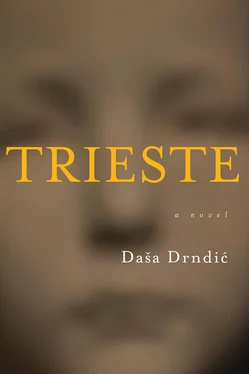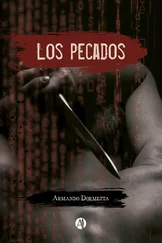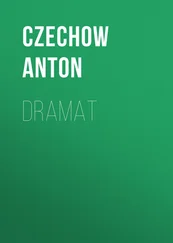When I was young I used to go mountain climbing, Aurelia says. Mountaineering is good for breathing. And it fortifies the will, Aurelia says.
In the coordinate system the parabola may hold an interesting position, Haya says. The ordinates of a parabola may be positive, plus and negative, minus, if the sign of the derivative of the parabola is only positive or only negative in a neighbourhood, then no extreme values can exist in that neighbourhood. Don’t mention mountaineering, that mountain discipline, Haya says. I do not like disciplines. I don’t even like cycling anymore.
The days do not unfurl, but neither do they trip over one another. Strangely, Haya does not get ill. Haya is a hale old woman. A small dental bridge with the upper-right first and second molars, (the other teeth are hers); cataract surgery on both eyes; her gall bladder removed; mild bronchial asthma (in spite of which she continues to smoke some fifteen cigarettes a day); a fractured tibia thirty years ago — that would be it. Of course, the functions of her body are slowed, diminished and brief, and a nasty itch plagues her in the early evenings: lower arm, upper arm, the left lower arm, then the right, Haya scratches and scratches and scratches, she holds her arms under a stream of cold water and looks, aghast, at the tracks of her fingernails on her thin, dry skin. Am I disappearing? she asks. Her sleep is light, her bloodflow inaudible, the beats of her heart short, like her steps; her vision and her dreams, yes, her dreams, are melting; only Haya’s wait grows and she is frightened that this wait of hers will spill over into nothing; that it will drain away, that soon it will whisper to her I am the wait that got tired, I am your lifeless wait and I’m off now, ciao.
HURRY UP PLEASE IT’S TIME
Though she has had a computer for fifteen years now, Haya uses the Internet at the city library, it costs less. It’s all so simple, this Internet , Haya says to the librarians, who are surprised; she cannot see why the librarians are surprised. And so, three times a week, from eight to ten at the city library, Haya reads the newspapers on the Internet (mostly German, Italian and Slovenian), and sends letters to the International Red Cross, the Italian Red Cross, to the state and city and tracing services at home and abroad. Slightly hunched, bent at the waist, petite, grey-haired, with spectacles perched on the tip of her nose, her lips pursed and her chin held high, she peers at the monitor as if looking for spots to wipe away with a moistened finger. But they can’t be wiped away. What she comes up with, what she sees while she writes her electronic missives to known and unknown witnesses scattered around the world, to the tracers who are like truffle-hunting dogs, like burrowers through the past, becoming one herself, a bloodhound riffling through the rubbish heap of time, are nothing but gleams of lives among which is hers, gleams reduced to embers under the ashes of which writhe small truths, no longer needed by or essential to anyone. And, while Haya taps at the keys, Gorizia whispers Crazy Haya. And Haya asks, Is it time?
In June 2006 Haya is visited (after all) by a little dream, a quiet dream, so small and so quiet that Haya barely recognizes it.
on the street, barefoot and in the dark, haya goes to a public toilet. the floor of the toilet is awash with urine and faeces, she has nowhere to go, behind her the ground is caving in. to get to the toilet seat, haya wades through the excrement and stares at her belly, which swells before her eyes. i am calm, she says, although no-one knows who the father is, she says. later, haya returns to an old abandoned flat, then a man with a camera around his neck runs in to the flat and says: i am a spy. it is alright, i am pregnant, haya says, i’ll lean on your chest, she says. light brown freckles come out on her temples and forehead. ada springs up from somewhere, all dripping in urine. haya says, mama, now we look alike, but ada only smiles and jerks her head. then ada says, here, haya, read this. on a page torn from pravda are written the words, józsef nagy: “the truth is hard to find”
On Monday, 3 July, 2006, Haya receives a letter from the International Red Cross, or rather the International Tracing Service (I.T.S.) in Bad Arolsen. This letter, as Haya realizes immediately, is not a Christmas or New Year’s card, because it is not winter but summer. The Red Cross, in fact their tracing service, in fact Mrs Helga Mathias, who signs the report, informs her that a copy has been found in Bad Arolsen of a baptism certificate which matches the one Haya sent them with a black-and-white photograph of an infant, on 2 February, 1946, asking for their help in finding her son Antonio Tedeschi, born 31 October, 1944, in Görz, then part of the Adriatisches Küstenland, within the borders of the Third Reich. Helga Mathias writes that in this letter Haya describes how her son Antonio Tedeschi disappeared on 13 April, 1945, but Haya cannot grasp why Mrs Helga Mathias is repeating what Haya wrote sixty years before, because Haya remembers every word of what she wrote to the International Tracing Service sixty years before; after all, children do not go missing every day, the disappearance of children is not such a commonplace event. The disappearance (of children) is something one remembers for a lifetime, isn’t it? Despite the fact that the baptism certificate is incomplete, writes Helga Mathias, and as the mother of the child, Haya Tedeschi, which we are assuming to be you, was not wed to the father of the child, S.S.-Untersturmführer Franz Kurt, born on 17 January, 1914, in Düsseldorf, we gave your petition serious consideration, writes Helga Mathias from the International Tracing Service in Bad Arolsen. Helga Mathias adds that the petition was in a misplaced box with documents, untypically preserved, about the secret Lebensborn project, with it a letter from Father Carlo Baubela from Görz, today Gorizia, who baptized the child and then handed a copy of the document about the birth of Haya’s son to an unknown person, and that with the letter from Carlo Baubela they found an official order from the Central Office of Reich Security under the supervision of the Ministry for Internal Affairs in Berlin (Reichssicherheitshauptamt, or R.S.H.A.), signed by Heinrich Himmler, Reichsführer-S.S. and Minister, who was in charge of the Ministry at the time. Apparently, according to Heinrich Himmler’s directive, writes Helga Mathias, “a male child of Aryan descent, with the temporary name of Antonio Tedeschi is to be sent to Schloss Oberweis near the town of Gmunden, region of Traunsee, in the former Austria”. Since most of the files holding documentation from most of the Lebensborn homes throughout the former Third Reich were destroyed just before the capitulation of Germany, Helga Mathias writes, it is highly unlikely that we will find any information pertaining to Schloss Oberweis. For now we are assuming that your son was given up for adoption to a German or Austrian family, and that his name was changed at the time. For additional information, writes Helga Mathias, please contact the Red Cross of your country at CROCE ROSSA ITALIANA, Servizio Affari Internazionali, Ufficio Ricerche, Via Toscana 12, 00187 Roma.
For sixty-two years she has been waiting.
If she knew how to pray, Haya would now say to the sky:
Thou bringest all who are dispersed by war
The sheep thou bringest home, to rest:
the child thou bringest to the mother’s breast.
but Haya does not know how to pray,
O Lord Thou pluckest me out
Читать дальше












